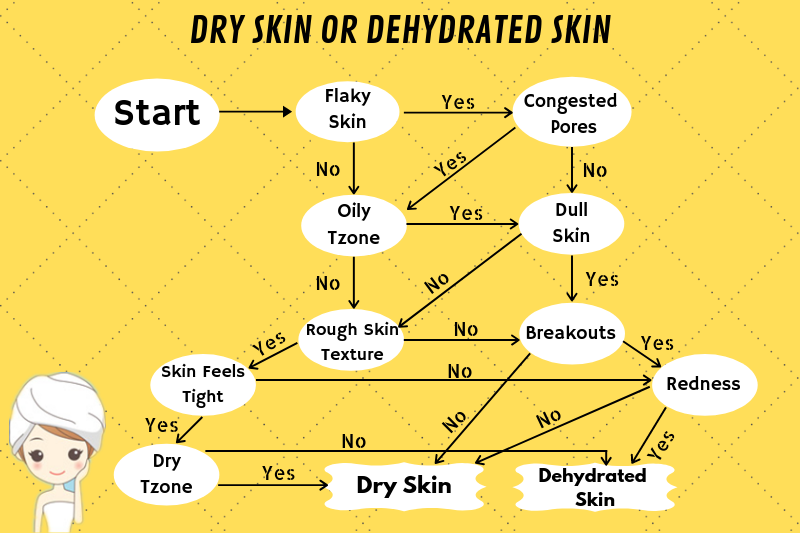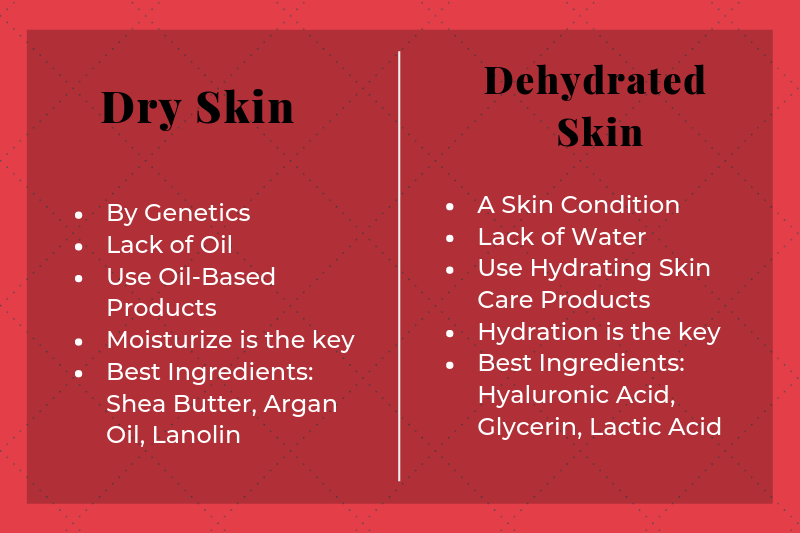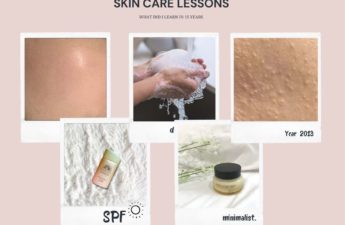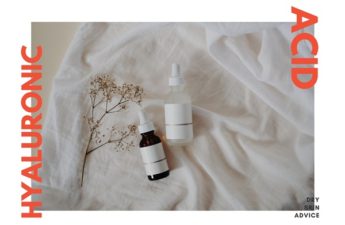The skin covers our entire body from head to toe, it is the part of our body that is in permanent contact with the outside, so it protects us from external agents such as cold, heat, microbes, etc.
First of all, dry skin is defined by the sensations experienced by those who suffer from it. The person feels uncomfortable, the skin is tense, feels rough, and the application of an appropriate product helps to mitigate the discomfort.
The skin is such a resistant fabric that sometimes we forget to take care of it properly. With the arrival of winter, the skin suffers, and especially the hands and face that is the one that is usually left unprotected so that it weakens itself to protect the internal organs staying exposed to the inclemencies that may suffer.
This leads to suffering the effects of dry skin, that unpleasant sensation of tightness and itching.
Also, water is essential for the whole body; after all, the body is 70% water.
We all need to keep the body hydrated, both internally and externally, to see and feel good.
When the body becomes dehydrated, many things can happen and none is good. The most obvious is that we are thirsty.
However, we can also experience dry mouth, muscle cramps, headache, nausea, and loss of energy. And, the skin also suffers.
Dry Skin or Dehydrated Skin
If you are confused, go ahead and take a small quiz to determine your skin type.

Dryness is a state of the skin, while dehydration is a condition, that is, something punctual.
Our skin (either oily, dry or mixed) can be dehydrated for several reasons: when it is in contact with cold or heat, with drastic changes in temperature, with sun exposure, etc. That is why skin can be dehydrated, have wrinkles and have some annoying granite of those that we do not like at all.
But dehydrated skin and dry skin are two different things.
One of the big mistakes that we usually make is to think that dehydrated skin is the same as dry skin. There are many people who use these two terms indistinctly, but the truth is that dryness and dehydration are not the same things, so they do not need the same care. Our skin may be dry but not dehydrated, and skin may be dehydrated and not be dry. Let’s see the difference!
Dry skin
Dry skin is considered a type of skin, as is oily skin, normal skin, mixed skin, etc. When the skin is dry, it means that there is almost no oil on the surface.
Dry skin can be improved or worsened, according to internal and external factors, such as the weather, the season, the skin care regimen, among others.
People who experience dry skin usually have patches of scaly skin visible on the surface. They are usually sensitive to extreme temperatures and fine lines and wrinkles are more visible.
The good thing is that people who have dry skin tend to have fewer outbreaks than those who have oily skin.
Surely a dermatologist or in the cosmetics section of a department store have done a study confirming what type of skin you have (oily, mixed or dry).
Skin types are determined, in large part, by genetics and other factors that cannot be controlled. Although dry skin can be treated with a series of care to keep it in the best conditions, it will always remain a dry skin.
Skin Care for Dry Skin
For dry skin, it is important to maintain good hydration and use products that are not aggressive to the skin. If you have dry skin, you definitely have to choose a cleanser formulated for dry skin to help you replenish the moisture you need.
You will want to use a facial serum along with a moisturizer during the day and night to nourish dry skin. And of course, you want to keep the body hydrated by applying a body lotion immediately after a bath or shower when the skin is moist.
The good thing about dry skin is that you can relieve the symptoms and keep the skin looking fabulous.
As a moisturizer, you should choose one that contains additional nutrients, and above all, that does not include aggressive components such as alcohols, parabens or artificial colors. This will relieve dryness and irritation and also avoid the loss of lipids that characterizes dry skin. Finally, strengthen your skin every night with some mask rich in amino acids.

Dehydrated skin
Dehydrated skin is a condition of the skin that can affect any type of skin, no matter which one you have. In other words, the skin of all people is prone to dehydration.
Dehydrated skin is the result of the body that needs moisture, both internally and externally. Herbalife nutrition expert Susan Bowerman always says that most people need 8 to 12 glasses of liquid daily (about 2 to 3 liters), but the needs may vary, depending on the gender, and the level of physical activity.
In contrast, dehydrated skin is a condition, not a type of skin. The skin becomes dehydrated due to lack of water. The loss of water from the skin responds to several factors. For example, dehydration of the body, overexposure to UV radiation, extreme weather conditions, changes in air temperature, pollution, disease, and stress.
When it comes to dehydrated skin there are some obvious signs that we have to pay attention to.
The skin looks dull, pale and tired. You may feel sore, sensitive and in some cases, you may feel a little burning. It can look red, irritated and have a rough and scaly texture.
And, unfortunately, any fine line or wrinkle you have will be much more visible. Actually, the signs of dehydrated skin are very similar to those of sunburn.
Dehydrated skin can occur at any time during the year, and is usually aggravated by weather, air conditioning, heating, wind or sauna baths, and of course by the decisions we make according to our style of a lifetime.
Things like smoking, drinking a lot of alcohol or caffeine, and consuming a lot of salt can contribute to the dehydration of the skin. We must also pay attention to what we apply on the skin. Skin care products that contain many strong or irritant ingredients, which have not been dermatologically tested, can cause this condition.
Skin Care for Dehydrated Skin
So what can we do? Make sure to keep the body hydrated by drinking enough water. Be aware of what you consume and what you apply to the body. Be diligent with your skin care regimen in the morning and at night.
Look for hydrating ingredients that contain aloe vera to give the skin the moisture it needs.
Choose a sulfate-free facial and body cleanser, as they will be much softer on the skin.
And, make sure to always use a moisturizer, from head to toe, to keep the skin hydrated throughout the day.
If you are really suffering, you can consider a hot steam humidifier to increase the humidity in your home or office.
This is very important to know because we often confuse dry skin with dehydrated skin, and treat it in an incorrect way.
For example, suppose you have mixed oily skin and your skin is dehydrated, that is, you have an excess of oil on your face and you lack water.
How do you solve it?
Well, the recommended thing is a serum that provides hydration to your skin: you will give all the water you need, but without adding any oil. That is, they have to be water-based products and not oil. Also, do not stop using your usual oil-free creams.
Keeping the body well hydrated, both internally and externally, is the key to keeping the skin looking healthy and young. A healthy diet, along with a daily regimen for skin care, is exactly what the skin needs. Remember, healthiest skin is always the most beautiful skin.
Conclusion
Genetics determines to a large extent the appearance and your type of skin. But the hormonal changes, the bad alimentary habits, and the environmental factors, also affect in its final aspect.
That is why it is so important to identify what your skin type is as a first step in determining what your proper facial care routine is.
The second step is to readjust your routine to the different changes that face the skin of our face.
It is important that you know your skin and knows how to identify what type of skin you have, this is to select the products, both cosmetics and facial care, more convenient for you and that is less likely to generate negative reactions on the skin.
If you have any doubt or anomaly that you detect on your skin, you should go to a dermatologist to check that there is no problem, as well as consult with your trusted pharmacist what specific products are going to help you treat your skin.


